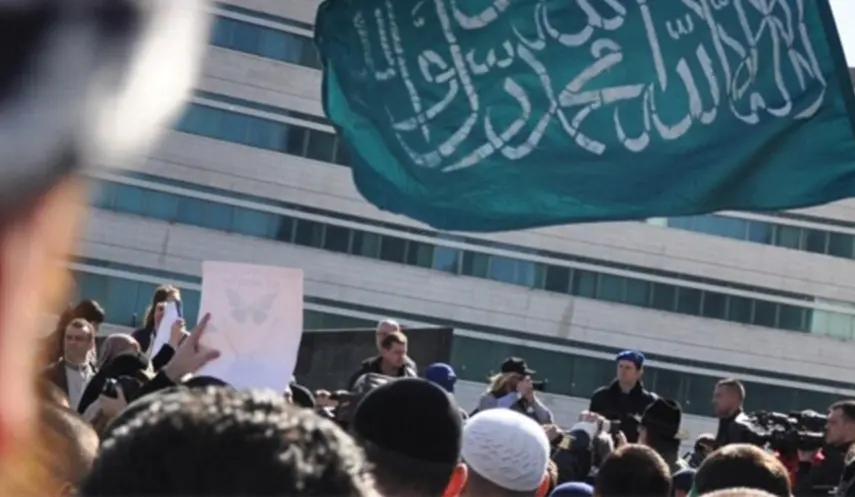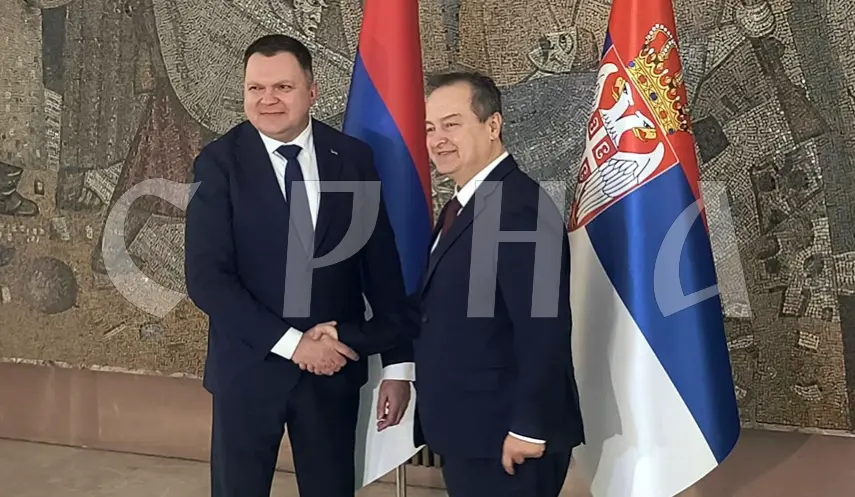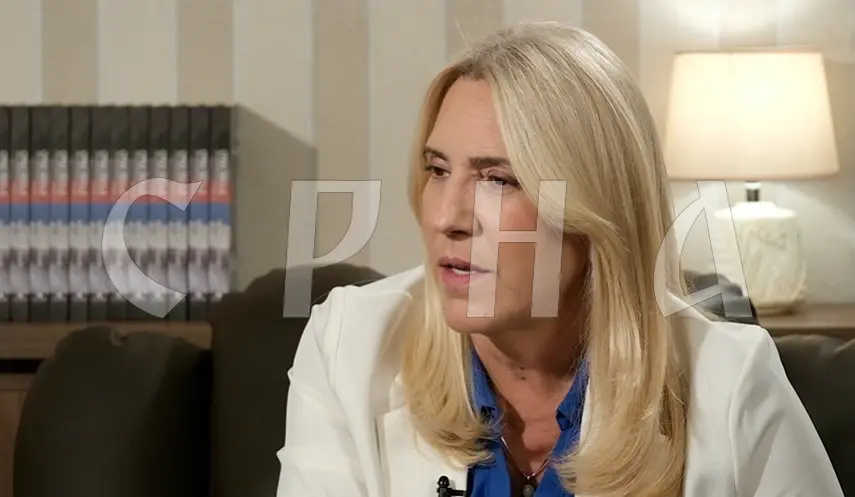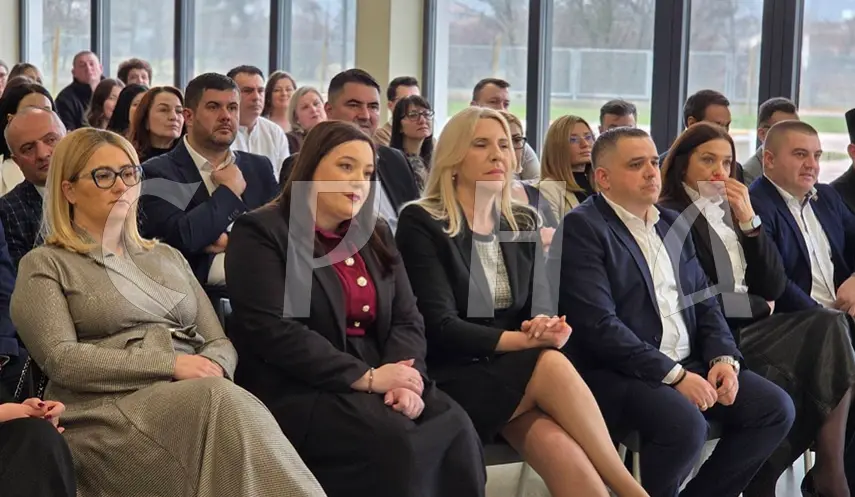ŽUPLJANIN: ISLAMIC RADICALISM - SECURITY THREAT IN BiH AND REGION
BiH - Islamic radicalism /6/
10/10/2025
11:52

BANJA LUKA, OCTOBER 10 /SRNA/ - Security expert Slobodan Župljanin believes that developed Islamic radicalism operating through Wahhabi communities, para-jamaats, training camps and other para-organizations represents the greatest threat to security not only in BiH, but also in the entire region, but also beyond.
"Today we are witnessing the rapid and strong connection of Wahhabi groups in BiH with identical or similar groups in neighboring countries. Through this movement, a high degree of political radicalism is being manifested," said Župljanin to SRNA.
Župljanin pointed out that completely free operation of Wahhabi terrorist groups is observed in the territory under the stronger control of Western powers, especially in the territory of the Federation of BiH /FBiH/.
He noted that for a long time there has been irrefutable evidence of the existence of para-jamaats in BiH, whose primary task is to spread Islamic radicalism as a kind of religious-political ideology that aims to establish absolute Sharia rule in all communities in the world where Muslims represent a relative majority.
He stated that para-jamaats and Wahhabi communities were identified in the Zenica suburb of Podbrežje, as well as in Šerići, between Zenica and Teslić, then in Tetovo Selo, Željezno Polje in the Zenica-Žepče-Teslić triangle, as well as in the villages of Nemila and Topčić Polje, and in the Zenica settlement of Orahovica, in the hamlet of Gornja Mahala, and the villages of Starina and Arnauti.
He said that, according to data published in an expert publication in September, para-jamaats and Wahhabi groups are located in the village of Jezera between Zenica and Teslić, as well as in the Zavidovići villages of Mećevići, Rujnica, Kamenica, Gostović and Stog.
When it comes to Sarajevo, Župljanin pointed out that paramilitary and Wahhabi groups are registered in the settlements of Sokolje, Osijek, Boljakov Potok, Zaklopača, as well as the one near the Butmir Airport /around Hajrudina Šabanije Street/, the villages of Briješće Brdo and Briješće Brdo 2, Dobroševići in the suburban settlement of Rajlovac, Bare near Stup, as well as Zaulice and Kasindolska Street in Ilidža.
He said that para-jamaats and Wahhabi groups are also registered in Tuzla - Ši Selo and Lipovice, Živinice and Gračanica, Banovići in the village of Strabašnica, as well as in the area of Travnik - the suburb of Kalibunar, village of Mehurići and Orašac hamlet.
Župljanin said that para-jamaats and Wahhabi groups are also located in the Bihać area in the village of Grmuša, then in the Cazin villages of Stijena, Mala Lisa and Šturlićka Platnica, in Debeljak - Debeljak hamlet and in Velika Kladuša, in the village of Bosanska Bojna,.
According to him, training camps exist in the area of Donji Vakuf - the hamlet of Kamenjača, the village of Brezičani, then Goražde - Bivolica, the hamlet of the village of Vitkovići, Gračanica - the village of Donja Lohinja, Hadžići - the village of Vrančići, Kakanj - the village of Hodžići, Kalesija - the village of Dubnica, Maglaj - Gornja Bočinja and Ošve, Srebrenik/Brčko - Gornja Maoča, the hamlet of the village of Maoča, and Tešanj - the villages of Bobare and Mekiš.
RADICALIZATOIN BEGAN IN 1990s
Župljanin pointed out that there was a strong and accelerated development of radical Islamism in BiH when Muslims, through census engineering, came to the realization that they were the majority in BiH, although in reality this is not the case.
"Then comes the extremism of the ideology itself, which is supposed to create unbearable hardships for the lives of non-Muslims in BiH. We see the first steps of serious radicalization in the 1990s, especially with the beginning of armed conflicts and the arrival of a large number of Mujahideen - jihad warriors in BiH, who committed previously unprecedented crimes, such as the ritual beheading of Serb prisoners, impaling their heads on stakes and playing with them like football balls," Župljanin pointed out.
He warned that political radicalism is clearly manifesting itself in BiH, while the leading Bosniak national parties do not hide the connections they have with organized crime and extremist political entities throughout the world, especially in Saudi Arabia, Turkey and Iran.
BiH CENTRE FOR RECRUITMENT OF ELEMENTS OF GLOBAL TERRORISM
"No one today can dispute the existence of Islamic radicalism and Wahhabi communities in BiH, but also throughout Europe. BiH has become a center from which all elements of global terrorism are recruited," Župljanin pointed out, stating that this is evidenced by reports from intelligence agencies and government structures in numerous European and other Western countries.
He pointed out the fact that almost nowhere in the world has a terrorist act occurred that was not in some way connected to BiH, which must concern everyone in BiH.
"An effective fight against such activities requires, first of all, the political will of those in power at the BiH and FBiH levels, and then systemic, highly skilled and professional solutions, which are not in sight at the moment. The current dormancy or inactivity of some groups or organizations is no guarantee for avoiding risks, threats and dangers," Župljanin pointed out.
The sooner those in charge wake up and pull their heads out of the sand, says Župljanin, the better it will be for everyone in BiH and the region.
ISLAMIC COMMUNITY HAS NO JURISDICTION OVER PARA-JEMATS
The Islamic Community in BiH told Srna that they have no jurisdiction over para-jamaats and Wahhabi communities, of which there are more than 70 in almost all major cities in the FBiH.
This religious community said that they have no knowledge of such communities in the areas of Zenica, Sarajevo, Tuzla, Bihać, Donji Vakuf and Travnik, and that this problem was "resolved in 2016 when the majority of such groups accepted the regulations and norms of the Islamic Community in BiH and integrated into its structure".
"Within the structure of the Islamic Community in BiH, there are certainly no such congregations, and whether there is any outside of it, we do not know and we have no jurisdiction over that, so you can seek information about them from the competent authorities and services," the Islamic Community of BiH said.
SRNA is still waiting for answers regarding this topic from the Investigation and Protection Agency /SIPA/ and the Ministry of Internal Affairs of the FBiH.








